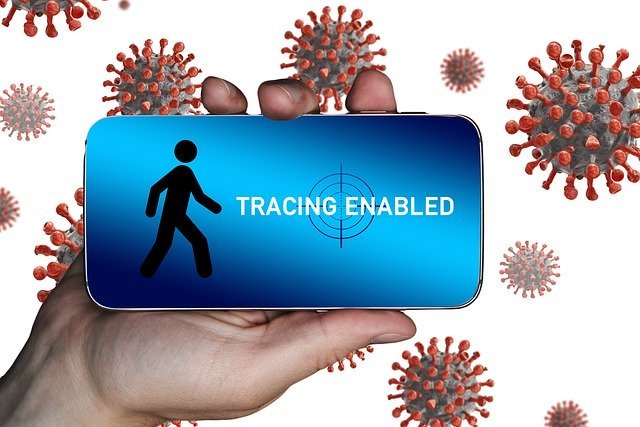“Contact tracing.”
It’s a phrase most Americans were wholly unaware of just a few short months ago, but now it’s mentioned by governors across the nation as they discuss plans to reopen the economy in the wake of the Chinese coronavirus shutdowns.
And now the concept is coming to Texas, as health officials under Gov. Greg Abbott have recently signed a $295 million, 27-month deal with MTX Group, a firm based in Albany, New York, that has recently set up shop in Frisco.
It’s all part of Abbott’s promise to set up 4,000 contact tracers by the end of the month.
But what is contact tracing, and what are these contractors going to be doing?
According to the Center for Disease Control and Prevention, contact tracing is “a core disease control measure employed by local and state health department personnel for decades, … a key strategy for preventing further spread of COVID-19.”
As part of their professional duties, contact tracers are supposed to follow up with those who test positive for the virus and determine who they may have come into contact with. They then identify those who may have come into contact with the virus and urge them to get tested or exercise some form of social isolation with the stated goal of preventing the spread of the virus.
According to the CDC, contact tracers need to:
- Immediately identify and interview people with SARS CoV-2 infections and COVID-19 (i.e., disease)
- Support isolation of those who are infected
- Warn contacts of their exposure, assess their symptoms and risk, and provide instructions for next steps
- Link those with symptoms to testing and care
Texans recoiled when the city of Austin attempted to require restaurants to keep detailed logs of customer information, a move that Texas Attorney General Ken Paxton called “Orwellian.”
When technology is placed into the mix, the prospect of contact tracing begins to elicit even more opposition from Texans concerned about their privacy.
Proposals of app-based tracking platforms have indeed been floated by big tech companies and strictly implemented in other countries, including South Korea. Such apps use cell phone technology to record who infected people come into contact with, and then transmit the information to authorities—creating a plethora of questions about who controls that data and how they can use it.
Those questions and more have led to a federal lawsuit being filed to stop the implementation of such a program in Texas by longtime Houston-area conservative activist Dr. Steven Hotze.
Hotze has solicited plaintiffs to join him in the suit.
“New COVID-19 cases and deaths are falling across Texas, across the U.S., and around the world. COVID-19 is running out of steam,” Hotze said in an email to his supporters. “We sure don’t need contact tracing now. The government can only want contact tracing to be able to monitor and control you in the future.”
With the deal set to last for 27 months, the idea of taxpayer funds being used for over two years to pay for such privacy-violating policies is enough to concern every Texan.
This article appeared at TexasScorecard.com and was written by Brandon Waltens. It can be referenced at: https://texasscorecard.com/state/contact-tracing-coming-to-texas/



:quality(75)/https://static.texastribune.org/media/files/fd00248f901ee5091236eb0fa0473743/DPS%20Texas%20Capitol%20MG%20TT%2010.jpg?resize=440,264)
:quality(75)/https://static.texastribune.org/media/files/474ce36c7dc42f4b4356ffa483e275a9/SpaceX%20Brownsville%20MGO%20TT%2005.jpg?resize=440,264)
:quality(75)/https://static.texastribune.org/media/files/3dd0fae2a594c7ae8cf4695805d8ebaa/Biden%20Levee%20Construction%20EG%20TT%2016?resize=440,264)
